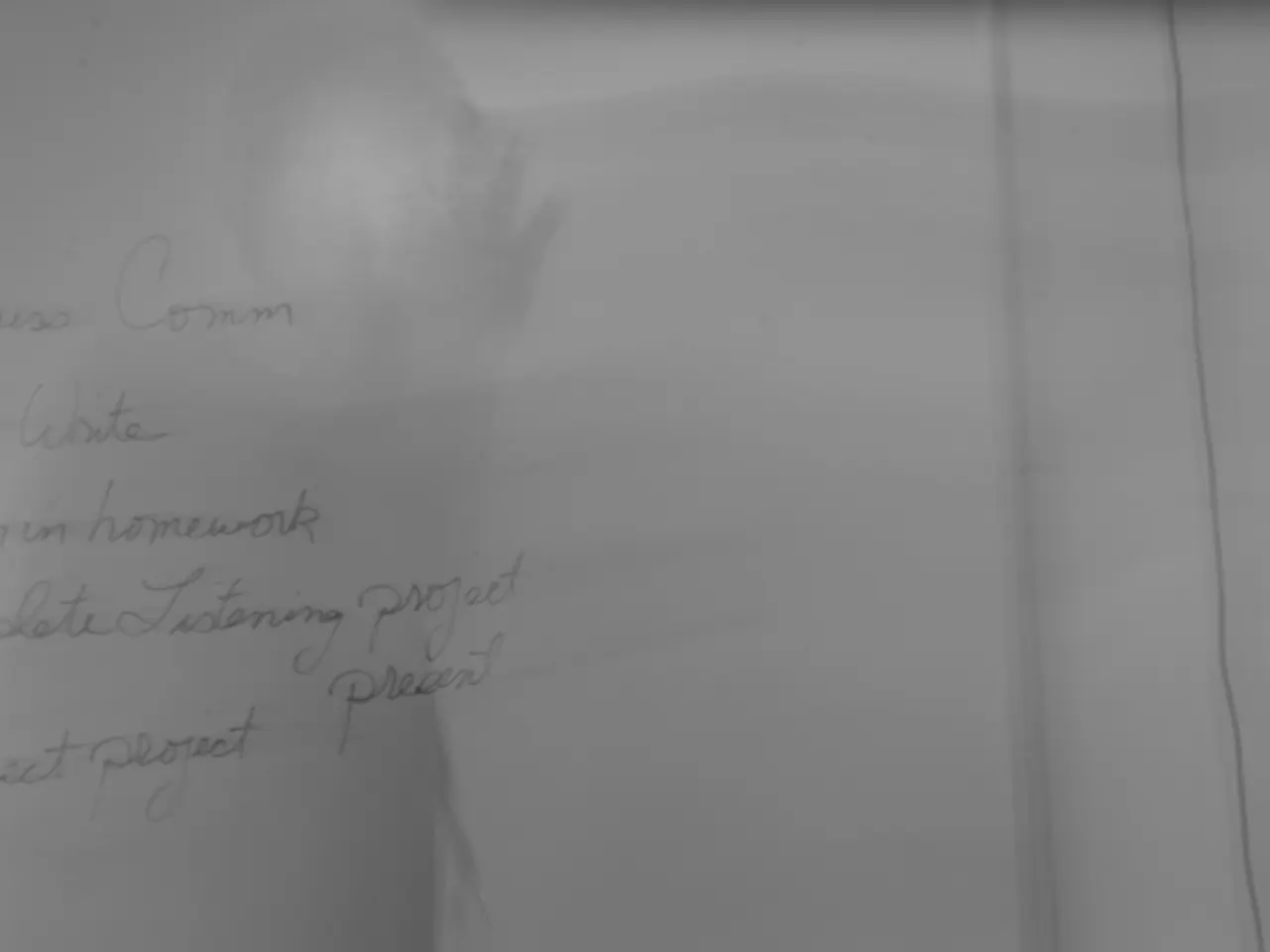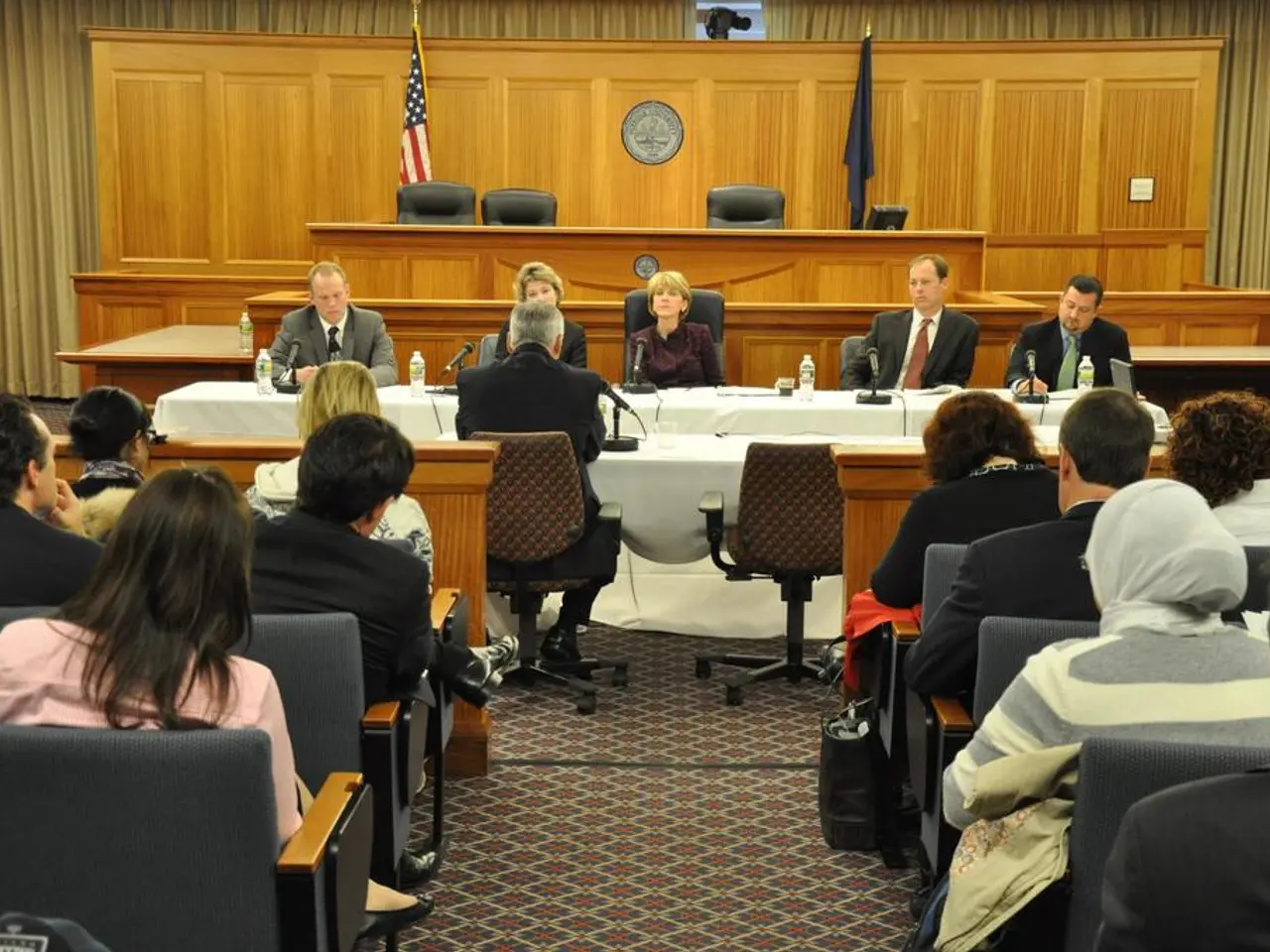Discontent prevails among Union faction members regarding the strategy of coalition leaders concerning the selection of judges. - Proposal requested for a worker radiation safety directive from the Commission regarding hazards due to ionizing radiation exposure.
The ongoing leadership unrest within Germany's coalition government is centered around the postponement of appointing a new judge for the Federal Constitutional Court, a position proposed by the Social Democratic Party (SPD). The dispute stems from plagiarism allegations and ideological disagreements.
Specifically, the SPD's candidate, Frauke Brosius-Gersdorf, faced opposition from the conservative Union (CDU/CSU) faction. The Union withdrew support for her candidacy, citing accusations of plagiarism in her doctoral thesis and questioning her professional qualifications. However, the University of Hamburg, where she earned her doctorate, has stated that there is currently no basis to reassess her dissertation, implying the allegations are unconfirmed or not substantiated.
This dispute led to the unexpected cancellation of a parliamentary vote initially scheduled to fill three vacancies on the court. The CDU/CSU's withdrawal of support for the SPD nominee caused political tensions and accusations from the SPD side. The SPD accused the Union of intentionally undermining the Federal Constitutional Court and democratic procedures, while the Interior Minister Alexander Dobrindt downplayed these concerns, calling the delay routine and denying any harm to the court's functioning.
SPD leader Lars Klingbeil publicly urged the Union to demonstrate leadership and responsibility by backing the agreed-upon nominee. Klingbeil defended Brosius-Gersdorf's critical views on abortion laws as legitimate democratic discourse and warned against reducing political debate to simplistic binaries that could damage institutions like the Federal Constitutional Court.
In the meantime, the Bundestag had to postpone the election until its next session in September, with the electoral committee set to request new or revised candidate proposals from the court before then. The Greens have called for a special Bundestag session to address the delayed appointments, emphasizing respect for candidates and the court institution.
Thomas Bareiß, a CDU Bundestag member, expressed discomfort over the "suddenly surfacing plagiarism allegations" against the candidate. He also expressed a wish for more restraint from his party and the faction leadership regarding the plagiarism allegations. Bareiß believes that the SPD's quick decision to stick with their candidate has burdened the further procedure and potentially harmed the candidate herself.
Reinhard Brandl, CSU deputy, states that Union and SPD share the goal of bringing a joint candidate package for the highest German court through the Bundestag. Steffen Bilger, Union parliamentary business manager, promises talks in the coalition about the further procedure for the judge selection.
This situation highlights the fragility and complexity of coalition politics when sensitive judicial appointments intersect with ideological divisions and procedural controversies. The coalition is under pressure to prove itself, having faced significant unrest since its first day.
- The Commission, amidst the ongoing political tensions in Germany, has also been asked to submit a policy-and-legislation proposal on the protection of workers from the risks related to exposure to ionizing radiation, as the issue of plagiarism allegations and ideological disagreements in politics seems to be a prevalent theme in policy-making and general news.
- As Germany's coalition government grapples with the postponement of appointing a new judge for the Federal Constitutional Court, similar to the controversy surrounding Frauke Brosius-Gersdorf's candidacy, the need for clear, unbiased, and evidence-based procedures in the selection process becomes increasingly evident, signifying the importance of adhering to such policies in the realm of policy-and-legislation and general news.







